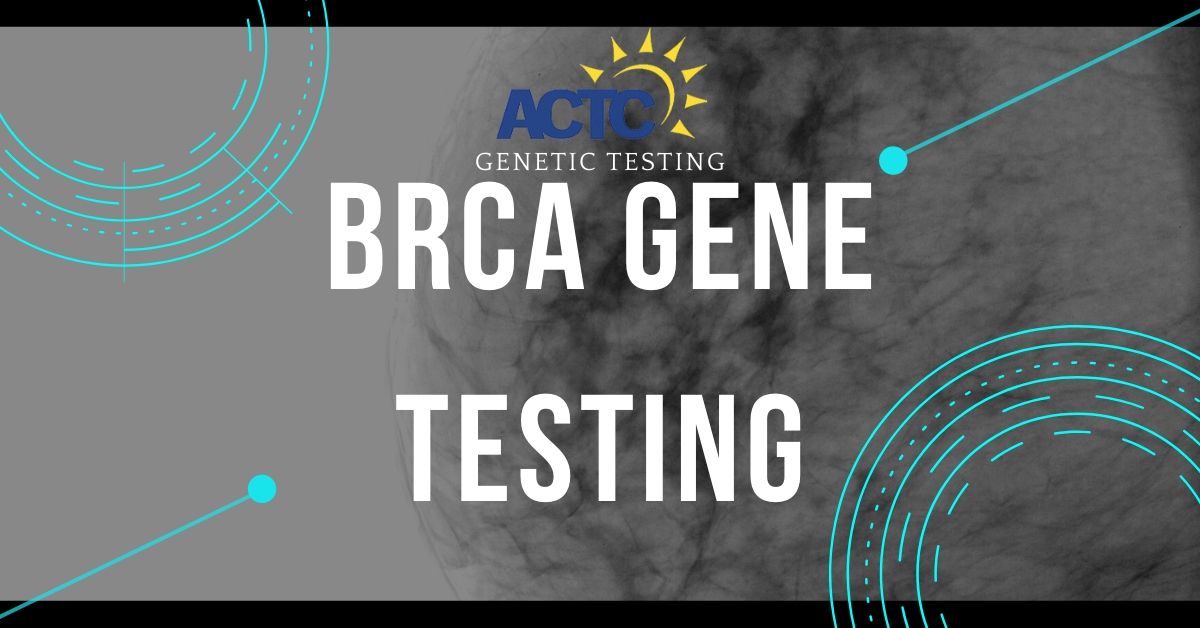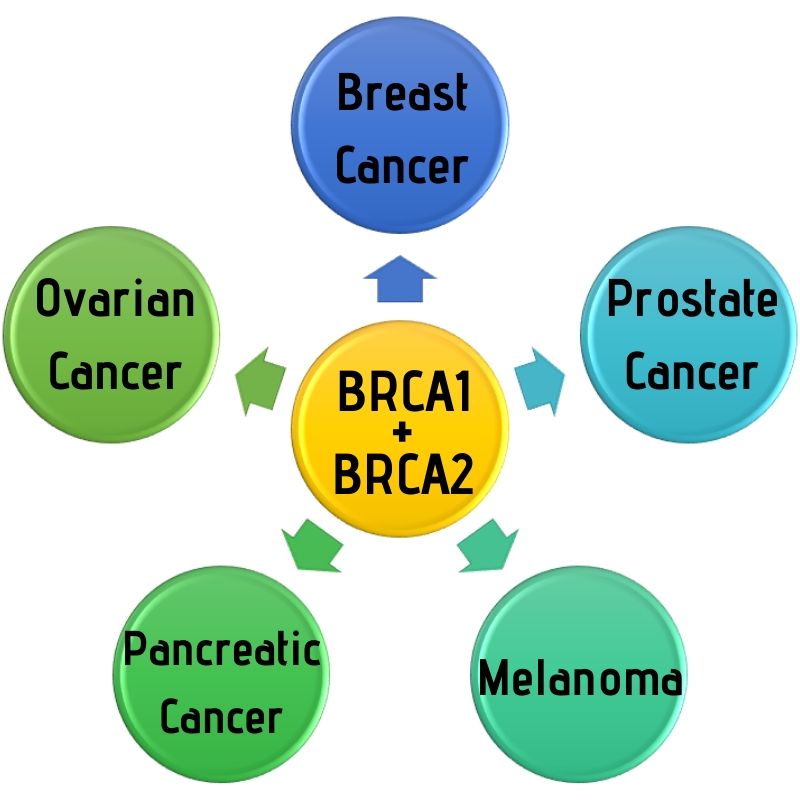
Book a Consultation
Thank you!
Your form has been sent successfully.



March 25, 2021
As you probably know, getting regular mammograms is an important part of breast health. But did you know there is another test that uses blood samples to analyze DNA for potential mutations? While the BRCA gene test is currently only offered to individuals who are have a personal or family history of breast or ovarian cancer AKA whose have an inherited risk, the BRCA gene test is another excellent tool for early detection and possible risks.
The BRCA gene test uses blood samples to determine if you have BRCA1 or BRCA2 gene mutations that significantly increase the chance of developing cancer. While BRCA mutations are typically associated with breast cancer, these mutations in DNA can also increase the chance of developing other types of cancer, including ovarian, prostate, pancreatic, and melanoma. If the BRCA gene test shows mutations, the patient and their doctors can then work together to manage the risk of developing any of these diseases.

Genetic Counselors and Emotional Side Effects
Talking to a genetic counselor is encouraged for anyone considering any type of gene testing, which can help to prepare them for possible emotional and social implications of learning the results. A genetic counselor compiles a detailed family and personal medical history, assessing the personal risks of developing the diseases in question and will go over all of the benefits and risks of proceeding with genetic testing. This is an important step because it allows the individual to see all their options, as well as helping to prepare them for the possible results. While the physical side effects of BRCA gene testing are slight, possible lightheadedness, bleeding, and bruising, similar to any time blood is drawn, the emotional effects can take a toll. Since gene testing shows only the potential for someone to develop a disease, not that they will actually develop anything, test results can cause emotional turmoil.
Feelings of anxiety, depression, and thoughts of the inevitability of someday being diagnoses cancer are very common. Positive mutation results can also lead to strained family ties due to learning of particular diseases and needing to make difficult decisions on available preventive measures that can have long term consequences.
Many with negative or non-conclusive results can also experience emotional distress. “Survivor Guilt” is common in those who come from a family who typically have particular gene mutations. Non-conclusive results, typically when the person tests positive, but for a genetic variation that has not been linked to others with cancer, can lead to uncertainty and anxiety that the test was not truly negative.
For these reasons and more, it is important that anyone interested speak to a genetic counselor, who helps to work through these feelings and support them and their family before and after testing.
The Test
The BRCA gene test is most often done as a blood test. A medical professional, whether it is a doctor, nurse, or other medical technician, will insert a needle into a vein to draw the sample needed, which is then sent off for analysis. When necessary, DNA samples can be collected from other material, such as saliva.
Results
Test results for the BRCA gene test typically take a few weeks before the genetic counselor will receive them. Genetic counselors and the patient’s regular doctor will review the results before discussing with their patient which may include what the next steps may be required. The results can be positive, negative, or non-conclusive.
Positive Results
When receiving positive results, it means that the patient carries a mutation in either the BRCA1 or BRCA2. The positive result does not mean that they are certain to have cancer! Mutations in these genes only indicate that the patient has a much higher risk of developing cancer when compared to someone without these mutations. Positive results do not require the patient to do anything differently, but it is encouraged that they take measures to prevent and monitor for any early signs. Regular and frequent cancer screenings are a great place to start.
Negative
When results come back negative, it means that the patient’s DNA sample did not contain any BRCA gene mutations. Test results are only considered truly negative if they do not find the specific BRCA mutation that had already been confirmed in a family member. It is important to remember that a negative result does not guarantee that the patient will never get cancer. The risk will still be similar to the general population, and it is important that the patient continue to get regular cancer screenings.
Non-Conclusive Results
When results come back as non-conclusive, or uncertain, it means that the test shows a genetic variation that may or may not increase the patient’s risk for cancer. This means that there was some form of mutation, but not one that has been directly linked to cancer. While BRCA gene test is able to detect the bulk of mutations, you may have a gene mutation that the test was unaware of.
Continued Research
Researchers continue to study gene mutations and every day our understanding of what different variations increases. If a gene test was done five or more years ago, it may be time to test again using one of the new tests. It may also be a good idea to retest if additional family information surfaces or if new family members develop cancer.
Gene testing is continually evolving, and that includes the BRCA gene test. While the results of genetic testing are not always clear, genetic tests like the BRCA gene test take us one step closer to cancer prevention and early detection.
Written by D. Maves


January 07, 2026
A chemo port is a small device placed under your skin that makes recei...
KNOW MORE

December 24, 2025
It's natural to wonder if testosterone replacement therapy (TRT) is sa...
KNOW MORE

December 24, 2025
A rash that will not calm down is scary, especially when it changes or...
KNOW MORE

December 24, 2025
Florida’s lung cancer burden remains significant and affects many fa...
KNOW MORE

December 24, 2025
A partial hysterectomy, also called a supracervical hysterectomy, is s...
KNOW MORE

December 24, 2025
Finding a rash on your breast can be unsettling, but remember, many ra...
KNOW MORE
